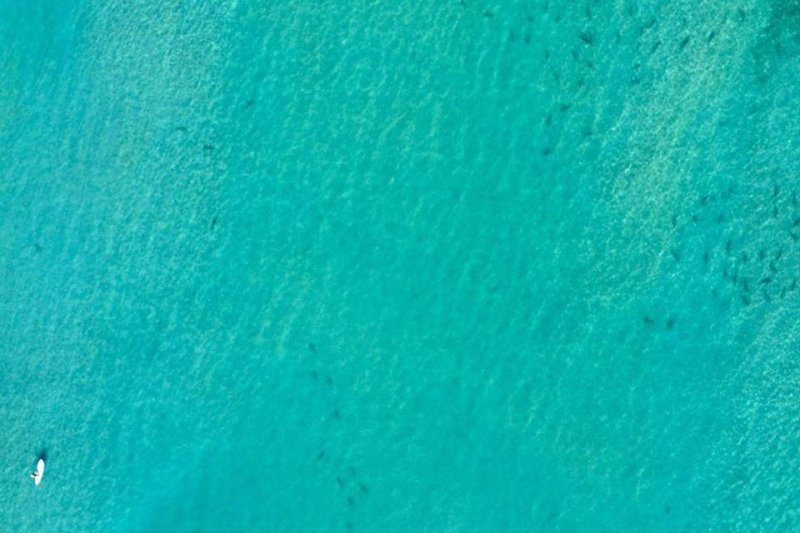A paddle boarder in the bottom left corner of an aerial photograph can be seen making his way towards several hundred blacktip sharks in the upper right portion of the shot. Thousands of blacktip sharks are congregating off the coast of Palm Beach, Florida. Photo by FAU Shark Migration
PALM BEACH, Fla., Feb. 15 (UPI) -- Florida biologists expected blacktip sharks to start showing up in large numbers a few weeks ago, in mid-January. That didn't happen.
The sharks are only now arriving in South Florida, but they're showing up in great numbers. Thousands can be seen congregating off the coast of Palm Beach.
Like so many fish and marine mammal species, blacktip sharks migrate -- chasing the movement of their prey and preferred water temperatures.
A combination of global warming and El Nino saw weather and water temperatures remain warmer much later into last year, delaying the departure of several species from the waters off the coast of New England.
The phenomenon led to larger numbers of stranded sea turtles and strange whale sightings. It also delayed the arrival of blacktips in Florida.
Now that they're here, they're making their presence known.
"The interesting thing is these sharks are right up against the shoreline," Stephen Kajiura, a Florida Atlantic University biologist who studies the sharks' migration patterns, told WPTV. "You could stand on the shore and toss a pebble and hit a shark, they're that close."
Though swimmers should always be cautious, Kajiura says there's no reason for alarm. The sharks are very wary of humans and relatively harmless.
"For the most part, these sharks are really skittish, so when you get in the water, they're going to scatter and go away," he said.
Unusual water temperatures have led to strange animal behavior on both coasts of the United States. Warm water in the Pacific has seen toxic algae blooms sicken animals up and down the West Coast.
The temperature changes have brought exotic sea snakes and tuna crabs to shore and left many emaciated sea lions lost and unable to locate food.















